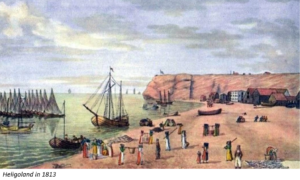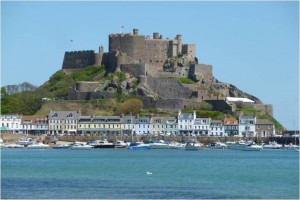 Captain Corbet James D’Auvergne could lay claim to knowing Jane Austen. The authoress mentions him in two letters to her sister Cassandra. Read more about Captain D’Auvergne connection to Jane Austen, and his achievements as Acting Governor of a tiny island in the North Sea called Heligoland.
Captain Corbet James D’Auvergne could lay claim to knowing Jane Austen. The authoress mentions him in two letters to her sister Cassandra. Read more about Captain D’Auvergne connection to Jane Austen, and his achievements as Acting Governor of a tiny island in the North Sea called Heligoland.
After a ball at the Dolphin Hotel in Southampton in December 1808, Jane Austen – proficient as ever in summing up a gentleman’s potential as a spouse – noted that Corbet James D’Auvergne was both a captain in the Royal Navy and a ship owner. The remark might have been a joke about husband-hunting, but the Captain was indeed a good catch for a lady looking for hero-material in her husband. Besides, he was still single. Any lady furthering her acquaintance with him should know, however, that he had his hands in large-scale smuggling.
Continue reading →



